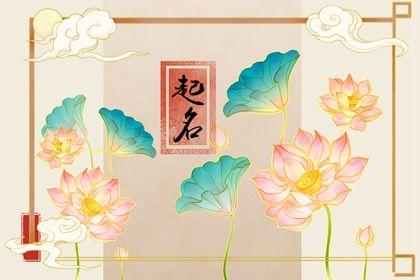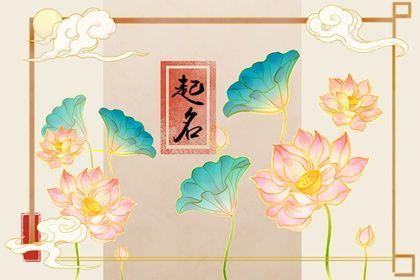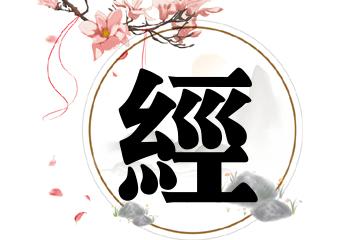依据古书为孩子取名怎样才能取好呢
- 作者: 杨默一
- 来源: 投稿
- 2024-11-07
一、依据古书为孩子取名怎样才能取好呢
依据古书为孩子取名取好名的技巧:
1. 了解古书的寓意:
研究《诗经》、《楚辞》、《论语》等经典古籍,了解其内涵和寓意。
查找与孩子出生日期、性格、愿望相关的诗句或典故。
2. 考虑字义和音韵:
选择字义吉祥、寓意美好的汉字,如“德”、“福”、“安”、“康”。
注意字音的和谐悦耳,避免生僻字或读音拗口的字。
3. 结合孩子的性别和出生时间:
男孩取名多用阳刚之气,如“刚”、“毅”、“勇”。
女孩取名多用阴柔之美,如“柔”、“婉”、“静”。
根据孩子的出生年月日时,选择与之相对应的五行属性的字。
4. 避免重复和俗气:
尽量避免使用过于常见的字,如“伟”、“丽”、“强”。
避免使用过于俗气的字,如“发财”、“旺财”。
5. 征求家人意见:取名是一个重要的决定,应征求父母、祖父母等家人的意见。
共同讨论,选择最合适、最满意的名字。
6. 考虑书写和发音:
选择书写方便、发音清晰的字。
避免使用笔画过多或读音复杂的字。
7. 结合现代审美:虽然依据古书取名,但也要考虑现代审美。
选择既有古韵又符合现代人审美的名字。
示例:男孩:
怀瑾(《论语·子罕》:“君子怀德,小人怀土;君子怀刑,小人怀惠。”)
泽宇(《诗经·小雅·蓼莪》:“泽陂有蒲,载脂载芰。我心则忧,载饥载渴。”)
浩然(《孟子·公孙丑上》:“我善养吾浩然之气。”)
女孩:婉兮(《诗经·郑风·野有蔓草》:“野有蔓草,零露漙兮。有美一人,婉如清扬。”)
芷兰(《楚辞·九歌·湘夫人》:“沅有芷兮澧有兰,思公子兮未敢言。”)
诗涵(《诗经·大雅·卷阿》:“卷阿之颠,兮兮其观。诗经之涵,维其有章。”)
二、依据古书为孩子取名怎样才能取好呢视频
依据古书为孩子取名取好名的技巧
视频内容:欢迎大家来到本期视频,今天我们将探讨如何依据古书为孩子取好名。
第一步:选择合适的古书
推荐使用《说文解字》、《康熙字典》、《古今图书集成》等权威古籍。
考虑孩子的性别、出生时间、家族文化等因素。
第二步:查找寓意吉祥的字
查找与健康、平安、富贵、智慧等美好寓意相关的字。
例如:安、康、福、禄、寿、智、慧。
第三步:结合字义和音律
考虑字的含义是否符合孩子的性格和期望。
注意字的音律是否和谐悦耳,避免生僻字或拗口字。
第四步:避免禁忌字避开与疾病、灾难、死亡等负面含义相关的字。
例如:病、灾、死、亡。
第五步:考虑字形和笔画
选择字形美观、笔画适中的字。
避免笔画过多或过于复杂的字。
第六步:参考古人名借鉴古人名中寓意吉祥、音律和谐的字。
例如:李白、杜甫、苏轼。
第七步:征求意见与家人、朋友或专业人士讨论取名方案。
综合各方意见,选择最合适的姓名。
依据古书为孩子取名是一项有意义且有讲究的事情。
通过遵循以上技巧,您可以为孩子取一个寓意吉祥、音律和谐、字形美观的姓名。
祝愿您的孩子拥有一个美好而有意义的名字。

三、依据古书为孩子取名怎样才能取好呢英语
How to Choose a Good Name for Your Child Based on Ancient Texts
Choosing a name for your child is a significant decision that can have a lasting impact on their life. Many parents turn to ancient texts for inspiration, believing that these names carry special meaning and significance. Here are some tips on how to choose a good name for your child based on ancient texts:
1. Research the Origin and Meaning of the Name:
Before choosing a name, it's essential to research its origin and meaning. Ancient texts often provide insights into the history and significance of names. Consider the language, culture, and time period in which the name was used. This will help you understand the true meaning behind the name and make an informed decision.
2. Consider the Symbolism and Associations:
Many ancient names have symbolic meanings or are associated with specific qualities or virtues. For example, the name "Leo" is derived from the Latin word for "lion," symbolizing strength and courage. Understanding the symbolism and associations of a name can help you choose one that aligns with your hopes and aspirations for your child.
3. Look for Names with Positive Connotations:
Ancient texts often contain names that are associated with positive qualities, such as wisdom, beauty, or prosperity. Choose a name that evokes positive emotions and conveys the qualities you wish for your child. Avoid names with negative or unfortunate connotations.
4. Consider the Sound and Pronunciation:
The sound and pronunciation of a name are important factors to consider. Choose a name that is easy to pronounce and flows well with your child's surname. Avoid names that are difficult to spell or pronounce, as this can lead to confusion and frustration.
5. Seek Inspiration from Multiple Sources:
Don't limit yourself to a single ancient text. Explore various sources, such as the Bible, Greek mythology, or ancient Egyptian texts. This will broaden your options and increase the likelihood of finding a name that resonates with you.
6. Consult with a Scholar or Expert:
If you're unsure about the meaning or origin of a name, consider consulting with a scholar or expert in ancient texts. They can provide valuable insights and help you make an informed decision.
7. Trust Your Intuition:
Ultimately, the best name for your child is the one that feels right to you. Trust your intuition and choose a name that you love and that you believe will bring joy and meaning to your child's life.
四、古书中适合男孩子的名字
经典子轩:轩昂大气,气宇轩扬
子墨:温文尔雅,墨香满腹
子衿:温润如玉,琴瑟和鸣
子渊:渊博多才,深不可测
子谦:谦虚谨慎,温文尔雅
儒雅书墨:书香门第,墨染风流
清风:清风徐来,温润如玉
明轩:明亮轩昂,气宇不凡
知远:知行合一,志存高远
博文:博学多才,文采斐然
大气浩然:浩然正气,气壮山河
长风:长风破浪,一往无前
天佑:天佑中华,国泰民安
乾坤:乾坤朗朗,气吞山河
凌云:凌云壮志,一飞冲天
俊逸子衿:温润如玉,琴瑟和鸣
子墨:温文尔雅,墨香满腹
子轩:轩昂大气,气宇轩扬
子渊:渊博多才,深不可测
子谦:谦虚谨慎,温文尔雅
寓意美好安康:平安健康,福寿绵长
嘉佑:吉祥如意,福泽绵延
瑞泽:祥瑞之气,恩泽广被
鸿运:鸿运当头,前程似锦
福寿:福如东海,寿比南山



